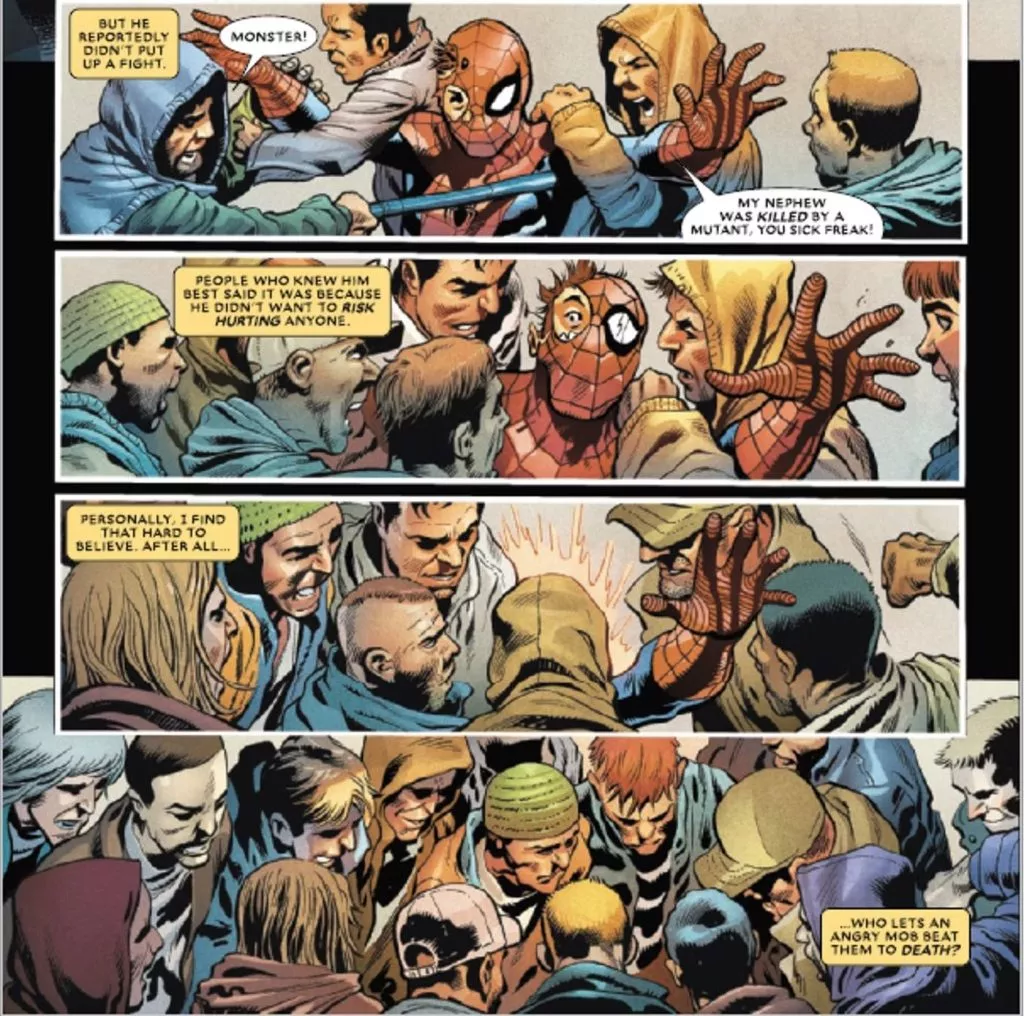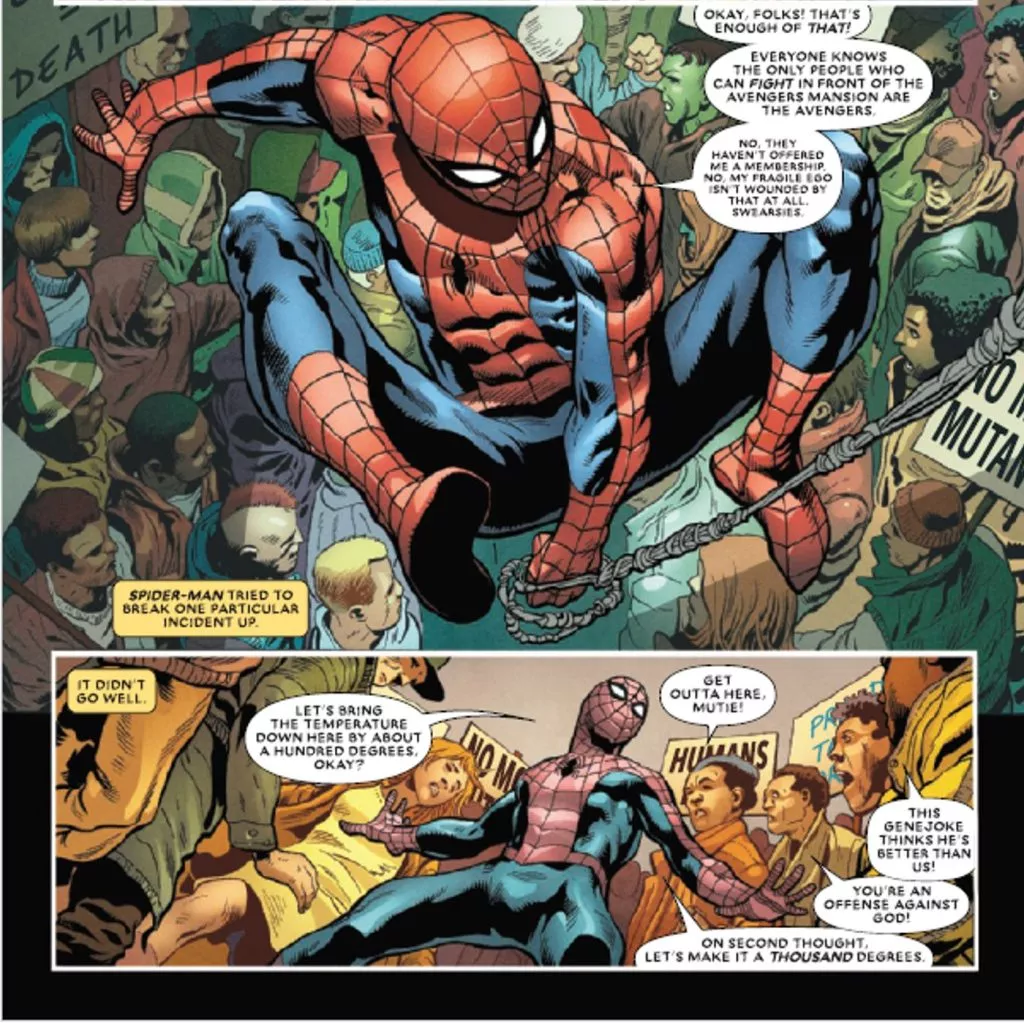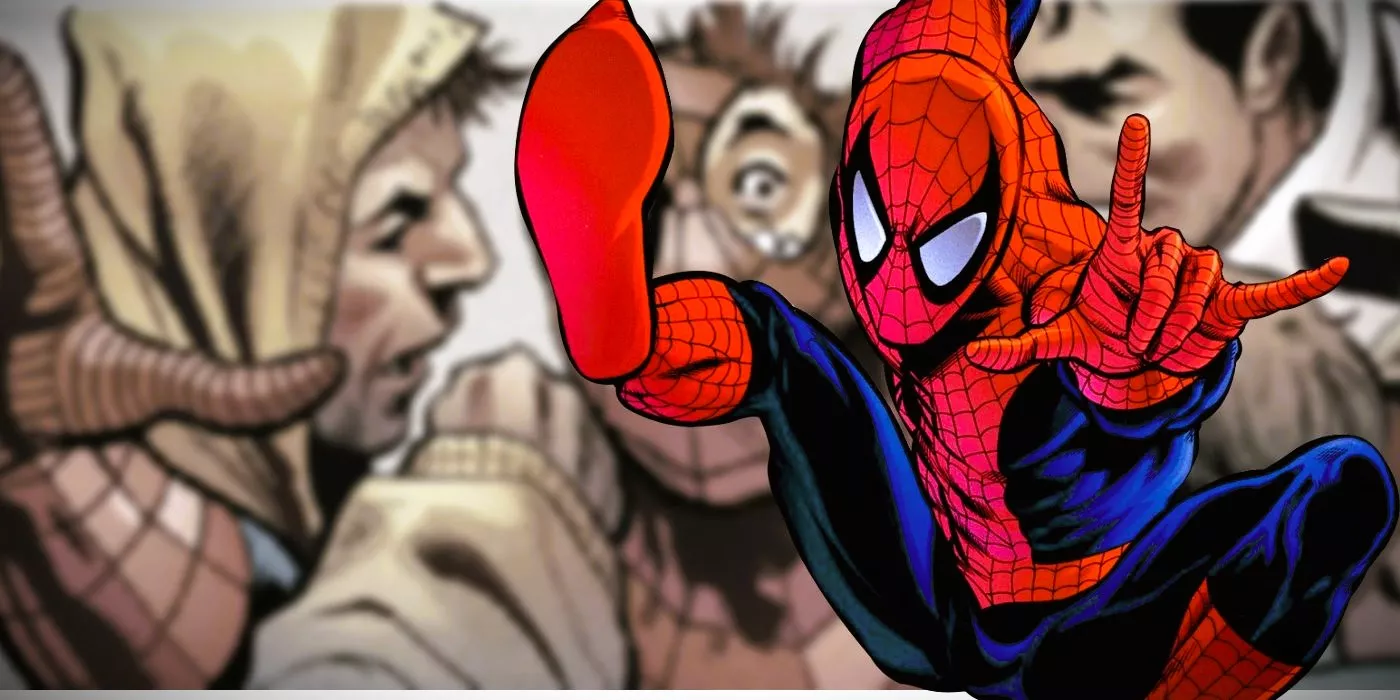Caution! The following text contains spoilers for X-Men: Days of Future Past – Doomsday #1!
In this issue, Spider-Man demonstrates once again the tremendous responsibility he carries. Instead of using his powers to take lives, he makes the ultimate sacrifice. Peter Parker, famously guided by the adage “With great power, comes great responsibility,” utilized his spider-like abilities for the greater good. Throughout his heroic journey as Spider-Man, he has exemplified the virtues of humanity, showcasing great restraint and a commitment to not resorting to lethal actions.
In the pages of X-Men: Days of Future Past – Doomsday #1, crafted by Marc Guggenheim and Manuel Garcia, we witness Spider-Man taking his ethical stance to a whole new level. This story acts as a prequel to the bleak Days of Future Past timeline, portraying a society engulfed by anti-mutant sentiment. The narrative delves into the significant role played by non-mutant heroes within the traditionally X-Men-focused storyline.
As the United States grapples with the aftermath of Nitro’s detonation in Stamford, the situation becomes even more volatile. President Stryker declares martial law, triggering a surge of bigotry not only towards mutants but also towards superheroes in general. Amidst violent protests outside Avengers Mansion, Spider-Man, the beloved friendly neighborhood hero, intervenes to restore peace. Unfortunately, the mob’s thirst for vengeance can only be satisfied by the taste of Spider-Man’s blood.
Spider-Man’s Horrifying End

In an utterly horrifying turn of events, Spider-Man meets a visceral and tragic end. Typically well-regarded by his fellow New Yorkers, the wall-crawler isn’t usually the target of such intense hatred and vitriol, except from figures like J. Jonah Jameson. However, on this fateful day, Spider-Man becomes painfully aware of the depths of bigotry and animosity that have gripped the people.
Despite Peter Parker’s efforts to diffuse the tensions, he realizes too late that the mob’s hatred and prejudice have consumed them entirely. Even though he points out that he is not a mutant, he is subjected to a relentless onslaught of anti-mutant slurs. But rather than backing down, the crowd’s frustrations find a target in Spider-Man, who becomes the focus of their rage.
Desperate to escape the brutality, Spider-Man tries to swing away using his web-shooters, but the mob is unyielding. They grab hold of him, preventing any chance of escape. Trapped and defenseless, Spider-Man faces an unimaginable fate. With no way to flee, he seemingly accepts his tragic destiny as the mob unleashes their fury upon him.
The assault is merciless and horrific, with fists, feet, and bricks raining down upon Spider-Man’s helpless form on the very lawn of the Avengers. It marks a dark and tragic chapter, leaving New York City and the world in mourning for the loss of their beloved hero.
The Moral Dilemma of Spider-Man’s Power

As Kitty Pryde points out, Spider-Man possesses “proportionate strength of a spider,” allowing him to deliver deadly force with ease. However, Peter restrains himself against ordinary criminals, aware of the potential lethal consequences of his power. While he could overpower the anti-mutant mob effortlessly, doing so would mean causing brutal harm and even fatalities.
Unlike some characters who might resort to extreme measures for self-defense, Spider-Man refuses to take lives. His fellow heroes often refer to him as “the best of us” not only for his selflessness but also for his commitment to preventing serious harm to anyone, even his enemies. Despite facing hate-filled and violent adversaries, Spider-Man values every life, including those of his attackers, and chooses not to embrace a path of brutality.
Though he could easily overpower the mob, Spider-Man opts not to unleash his full power and remains unwilling to take numerous lives to save his own. For him, great power entails great responsibility, and he would rather face his own demise than bear the burden of causing the deaths of others, regardless of their actions.
